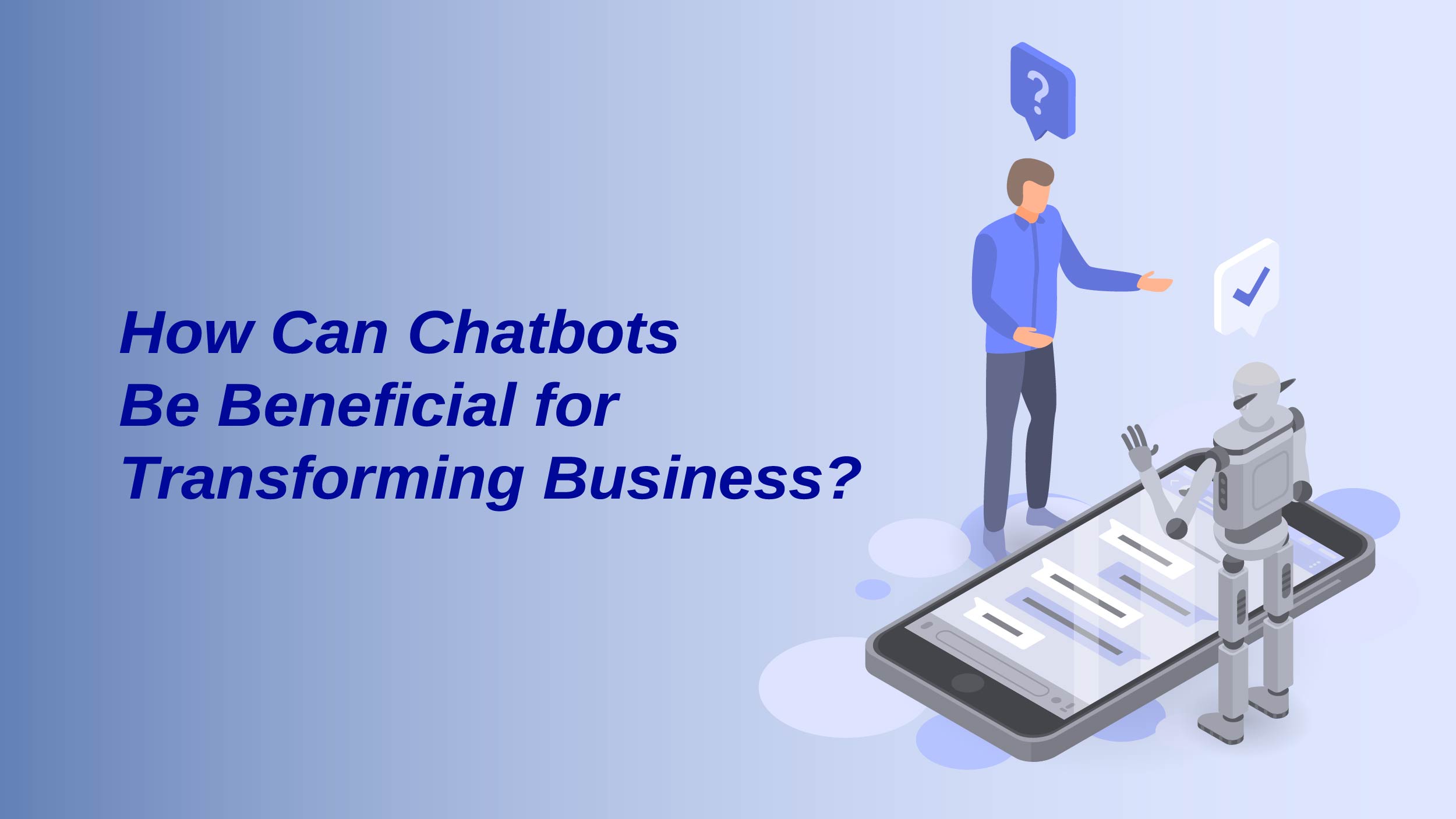The rise in on-demand messaging is changing how customers prefer to communicate. Many industries are now using chatbots to engage with customers continually and improve their experience. Business chatbots play a crucial role in enhancing customer service and transforming the way businesses interact with customers.
According to Gartner, artificial intelligence (AI) is becoming a mainstream investment for customer experience, with 47% of organizations using chatbots for customer care and 40% deploying virtual assistants. AI is revolutionizing communication, both with customers and internally, enabling machine learning and flexible interpretation of automated business communications. Looking ahead, chatbots are expected to evolve from handling basic user queries to engaging in advanced, real-time conversations based on predictive analytics. Let’s understand everything about chatbot trends you should know about in 2024.
How Can Chatbots Be Beneficial for Transforming Business?

Chatbots can also serve employees by solving all routine queries, resulting in fewer calls and chat volumes. By performing the work of employees, chatbots relieve the support team from such mundane and repetitive tasks, allowing them to get into productive conversations, which can have a huge impact on the organization. The major benefit of chatbots, as part of chatbot trends, can be seen in e-commerce. It tries to support the user and protect them from getting frustrated by technical issues. They try to recommend products to customers and also automate the prompts.
Chatbots are not only useful in the present but also have a promising future. As part of chatbot future trends, they will continue to evolve and improve their capabilities. Chatbots will become more sophisticated in understanding customer preferences and behavior, allowing them to provide personalized recommendations and offers. They will also integrate with other technologies such as augmented reality (AR) and virtual reality (VR) to enhance the customer experience. Furthermore, advancements in natural language processing (NLP) and machine learning will enable chatbots to engage in more human-like conversations and understand complex queries. With continuous advancements and innovation, the future of chatbots looks bright and promising.
Also Read: Sentiment Analysis: Turning Words into Insights
5 Chatbot Trends That Can Create an Impact on Businesses

-
NLP and AI Will Provide A More Human-Like Experience
Integration of natural language processing (NLP) and AI is one of the anticipated chatbot trends to look out for. As a company grows, its customer base increases too, and so does the need for customer problem-solving and assistance. This can become exhaustive. However, AI-powered chatbots are the perfect solution to tackle a massive customer base that faces product- or service-related issues. Chatbots can be integrated with all SMS, email, and mobile apps to answer a large volume of queries in real-time.
Shortly, this chatbot trends will be able to understand accents, respond to sentiments, give tailored replies, and improve the overall chat experience for customers. Moreover, by leveraging technologies like natural language processing (NLP) and AI, chatbots will behave more human-like.
-
Voice Bots
Voice bots are the next big thing in the chatbot world, and they are also one of the most exciting AI chatbot trends. In a world where we are already accustomed to “OK, Google,” and “Siri,” voice bots will add a personalized touch to help minimize the problems of customers. requirements. Customers will largely prefer businesses that have text as well as voice-based chat interfaces. The facilities provided by voice bots let customers convert speech to text and vice versa. These technologies make the task easier for both customers and businesses.
-
Chatbots Will Handle Payments And Payment Processes
Chatbots have automated many business processes already and are all set to explore financial aspects as well. With the increasing human dependence on AI, customers will expect chatbots to do more, like enter their payment information. Soon, chatbots will be integrated with payment gateways, and “Pay my bill” will be added as a menu option, allowing chatbots to make transactions for customers. This will help the customers process the payment in a hassle-free environment and save their time from clicking or typing buttons. This specific chatbot trend holds significant appeal for both businesses and personal use.
-
Emotional Intelligence
Emotional intelligence is a part of artificial intelligence that understands human emotions in a conversation to respond quickly yet in a human-like manner. It identifies speech and text to detect what you have typed and extracts information while simultaneously trying to understand your mood. With emotional intelligence, soft skills can be implemented in a chatbot to profoundly understand how consumers reach out and interact with businesses.
In the realm of chatbot technology trends, the integration of emotional intelligence into chatbots ensures that AI tools adeptly handle public relations. This advancement in conversation capabilities not only enhances commercial strategies but also contributes to garnering positive online reviews and generating referrals.
-
Chatbot Integration With Social Media
Social media is now an inevitable reality of our daily lives. While at home or on the go, scrolling through social media is everyone’s favorite pastime. Now chatbots have reached social media platforms as well. As social media is a highly conversation-centric platform, the integration of chatbots with social media is not a shocker.
Many businesses sell and promote their products on popular social media platforms like Instagram, Facebook, Threads, and much more. Customers already engage with brands through automated chatbot systems, and further integrating chatbots with social media will help brands engage and interact with customers more quickly and in a hassle-free manner.
Wrapping It Up
These chatbot trends have become integral to modern business, optimizing operations and enhancing customer service. Widely adopted for their efficiency and customer-centric capabilities, chatbots are recognized as valuable assets across businesses of all sizes. Chatbots are anticipated to play a crucial role in shaping future business-customer interactions, especially with the integration of voice and AI-powered features across various industries. As AI integration becomes more prevalent, chatbots are poised to revolutionize communication and customer service landscapes, enhancing everyday experiences. Companies embracing these evolving trends will gain a significant competitive edge, enabling them to deliver personalized services more efficiently to their clientele.

